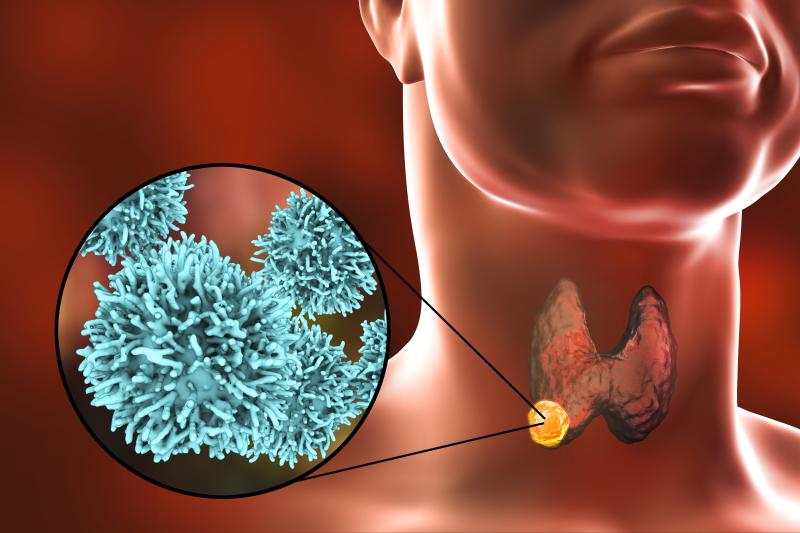
Patients with differentiated thyroid carcinoma (DTC) who had undergone thyroidectomy suffer from poorer health-related quality of life (HRQoL), which may be exacerbated by comorbidities, a recent study has found.
The study included 174 DTC patients who underwent thyroidectomy and 174 matched controls. The 36-item Short Form (SF-36) survey was used to measure HRQoL, and structured questionnaires were used to collect sociodemographic and comorbidity information.
At the 1-year follow-up, DTC patients scored significantly lower on almost all domains of the SF-36 questionnaire. Role-physical (79.5±31.0 vs 86.6±23.8; p=0.016), bodily pain (79.7±23.1 vs 87.1±17.7; p<0.001), general health (61.4±25.3 vs 73.1±22.1; p<0.001) and vitality (62.1±26.7 vs 70.8±22.3; p<0.001) were all significantly worse in DTC patients.
The same was true for social functioning (77.2±17.3 vs 84.8±13.2; p<0.001), role-emotional (74.3±23.6 vs 84.3±22.2; p<0.001), mental health (71.5±21.8 vs 81.7±20.3; p<0.001), and in the physical (PCS; 76.8±10.5 vs 83.3±9.9; p<0.001) and mental (MCS; 71.3±10.8 vs 80.4±10.1; p<0.001) component summaries.
Only physical functioning was comparable between patients and controls (p=0.694).
The presence of one or more comorbidities appeared to worsen SF-36 scores, resulting in significantly lower physical functioning (p<0.001). This trend was consistent across all domains of SF-36, except for social functioning, which was only significantly decreased by having at least two comorbidities (p<0.001).
This was further confirmed through multivariate analysis, which found that hypertension, diabetes and depression all correlated significantly with poor PCS scores, while hypertension, asthma and depression predicted lower MCS scores after 1 year.